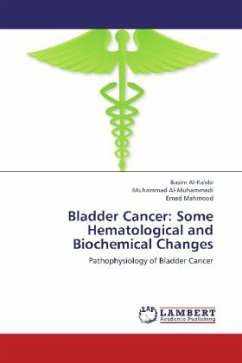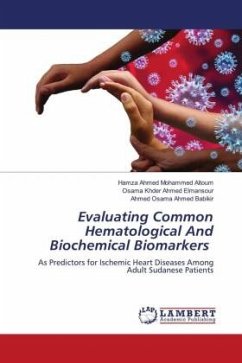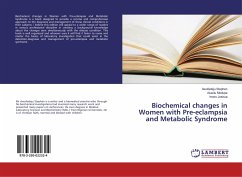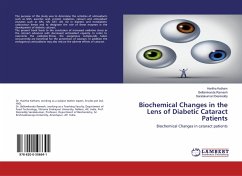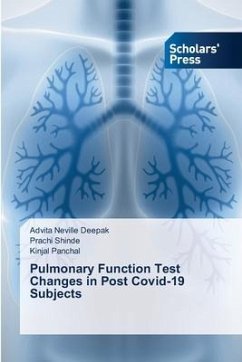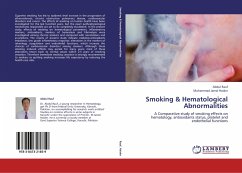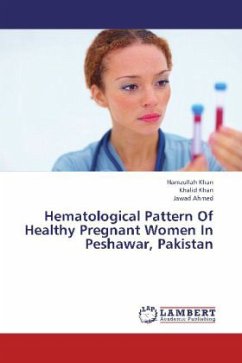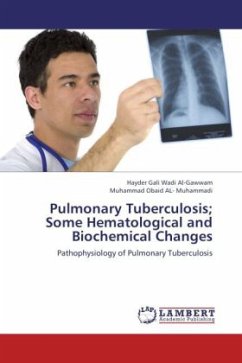
Pulmonary Tuberculosis; Some Hematological and Biochemical Changes
Pathophysiology of Pulmonary Tuberculosis
Versandkostenfrei!
Versandfertig in 6-10 Tagen
32,99 €
inkl. MwSt.

PAYBACK Punkte
16 °P sammeln!
Tuberculosis (TB) is the world s 2nd. most common cause of death from infectious diseases after HIV. Pulmonary TB is a highly contagious disease in which single patient may have devastating effects on TB control program by infecting large number of people. About one-third of the world s population infected with M.tuberculosis and three million people die every year from this disease, (9.4) million incident cases of TB globally occur annually, most of them occurred in Asia (55%) and Africa (30%), this increasing incidence of TB is a major concern to public health policy-makers in both developin...
Tuberculosis (TB) is the world s 2nd. most common cause of death from infectious diseases after HIV. Pulmonary TB is a highly contagious disease in which single patient may have devastating effects on TB control program by infecting large number of people. About one-third of the world s population infected with M.tuberculosis and three million people die every year from this disease, (9.4) million incident cases of TB globally occur annually, most of them occurred in Asia (55%) and Africa (30%), this increasing incidence of TB is a major concern to public health policy-makers in both developing and developed countries. Incorrect and insufficient treatment, emergence of multidrug resistant strains and the appearance of HIV all contributed to the failure of TB control, prompting the World Health Organization to pronounce TB a global emergency in 1993. This study designed to estimate some hematological and biochemical (pathophysiological) changes in patients with pulmonary tuberculosis in Babylon Province-Iraq since the levels of these parameters assisting the medical team in diagnosis and follow up of the disease during therapy.



